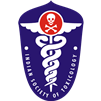Necessity of Regional Surveys of Poisoning Scenario for Establishing Clinical Toxicology Units in Major Hospitals
Keywords:
Clinical toxicology; Analytical toxicology; PoisoningAbstract
A clinical toxicology unit (CTU) is the functional union of two or more hospital professionals who combine their efforts for the generic purpose of improving the treatment of poison victims who go to a hospital for acute or chronic exposures. Clinical analytical toxicology is one of the most essential parts of CTU in treatment of patients poisoned with drugs or toxic chemicals in hospitals.
The police morgue of Department of Forensic and State Medicine, NRS Medical College, Kolkata received over 288 cases during the period May 2013 to April 2014. This study aims to analyze the data compiled during this period on different types of poisoning cases undertaken for postmortem examination, as also from medical history records. A total of 288 forensic toxicological cases were received from nine different districts, of which 134 (47%) were hospital-admitted cases. 127 cases (44%) were of unknown poisoning, while snakebites accounted for 57cases (20%), heavy metal-related for 38 cases (13%), alcohol-related for 22 cases (7%), and pesticides (mostly organophosphorus) for 30 cases (10%).
The State Forensic Science Laboratory is unable to provide clinical toxicology services due to inadequate resources and lack of awareness in clinical toxicology procedures. It is expected that a separate clinical toxicology set up will help clinicians to treat poisoned patients in the hospital in a more effective manner if facility for clinical analytical toxicology service is provided.



